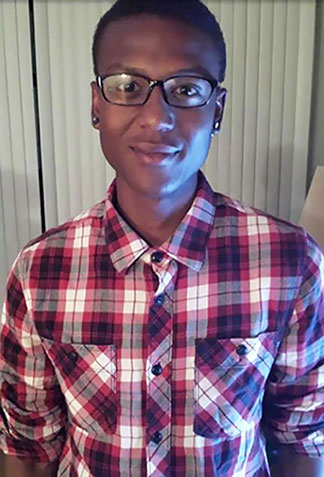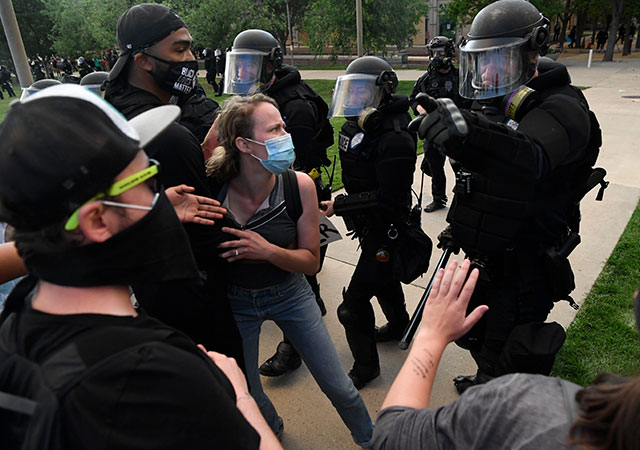August 2020
Elijah McClain (1996-2019)
 Elijah McClain
Elijah McClain (Family photo)
Walking home from the convenience store with an iced tea in hand can be enough to get you killed in this country – if you’re black. The infamous murder of 17-year-old Trayvon Martin in 2012 by racist vigilante George Zimmerman made that abundantly clear to anyone willing to see. In the midst of the most banal and routine of errands – purchasing a drink and some candy at the local convenience store in his father’s Sanford, Florida neighborhood – Martin was gunned down. Because he looked “suspicious” to a racist. Because he was a young black man.
Fast forward to 24 August 2019 in Aurora, Colorado. Different date, different state, same racist U.S.A. A young black man named Elijah McClain was listening to music as he walked home from a convenience store after picking up an iced tea for his brother. Someone decided the 23-year-old massage therapist looked “suspicious” and called 911. When police arrived and confronted McClain, one of them placed him in a carotid hold, which is meant to cut off blood flow to the brain. Paramedics arrived 15 minutes later, supposedly to treat him. Instead, they injected McClain (who was 5’6” and weighed 140 lbs.) with ketamine, a powerful sedative often used as an anesthetic and a veterinary tranquilizer. It was double the usual dose. He went into cardiac arrest on his way to the hospital, where he died three days later.
The coroner’s report said McClain’s cause of death was “undetermined,” but noted hemorrhaging in his neck and abrasions on his face, back and legs. The Denver affiliate of ABC (10 November 2019) stated that the report also noted that “an idiosyncratic drug reaction (an unexpected reaction to a drug even at the therapeutic level) cannot be ruled out” and essentially blamed McClain himself for his own murder: “most likely the decedent’s physical exertion contributed to death. It is unclear if the officer’s action contributed as well.”
The three officers involved in McClain’s murder were cleared of wrongdoing – the usual, outrageous outcome in a country where police murder black people with impunity on a near-daily basis.
Elijah McClain was a self-taught violinist and guitarist. He used to play his violin for stray cats and dogs, believing this helped soothe them. National protests against the May 25 murder of George Floyd by Minneapolis cops served as the backdrop to a violin vigil held a little over a month later for McClain at a park in Aurora’s Municipal Center. On June 27, string players from across the U.S. gathered to pay their respects to the young violinist.

Police attack violin vigil for Elijah McClain, June 27. (Photo: Andy Cross/The Denver Post)
They were met with violent police repression – batons, tear gas and pepper spray, participants reported, from police in riot gear who charged the vigil. “It was really a surreal scene.… You looked to the left to see all of us standing there with our hands up and the violinists continuing to play, and you look to your right and see hundreds of cops in riot gear” (The Cut, 29 June). For the cops, even playing music to honor the memory of yet another young black man cut down by their racist terror was an unforgivable offense to be drowned out and stifled with racist brutality.
The unbearable story of how Elijah McClain’s short life was brought to an end is one of countless stories of black people being killed simply for living their lives. As we fight to carry through our call – “Only revolution can bring justice” – we will always remember his name. ■
